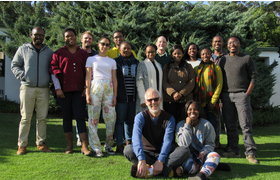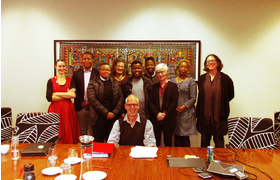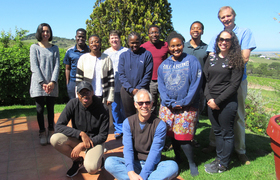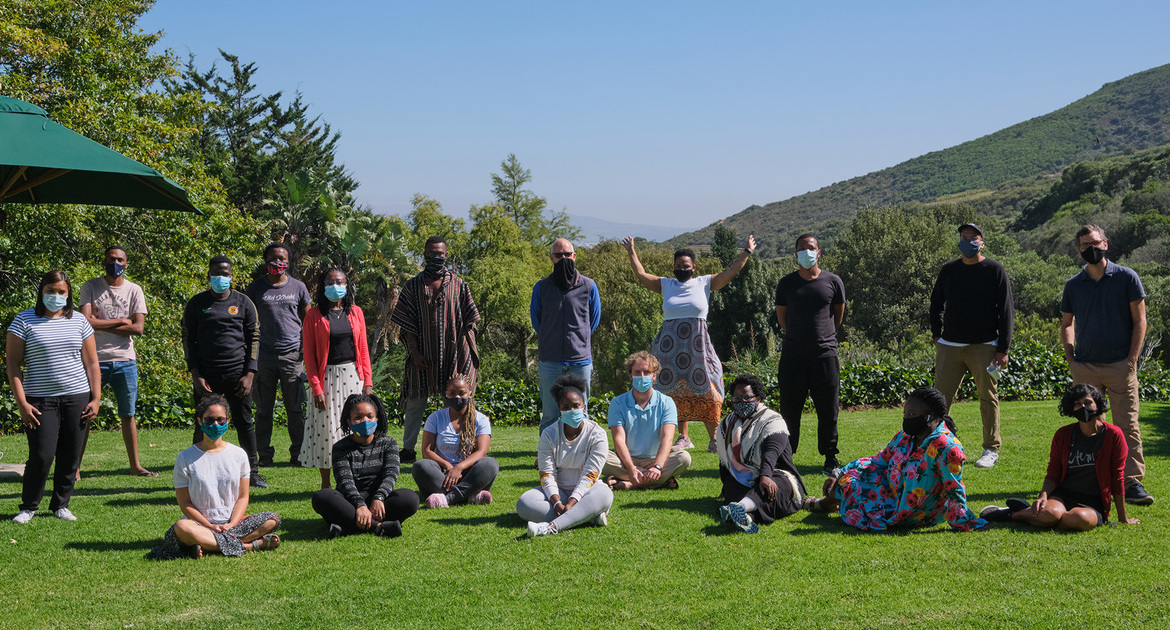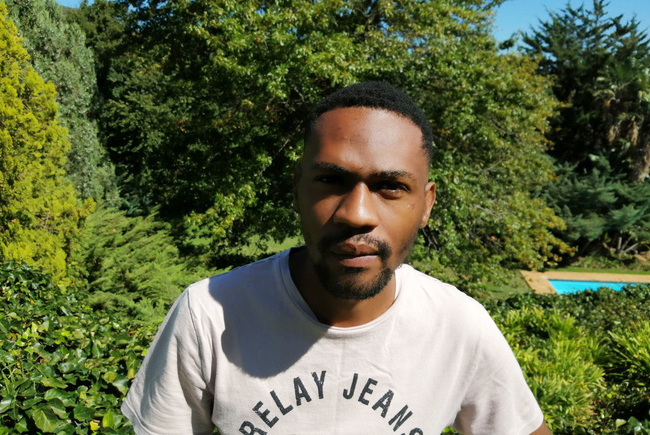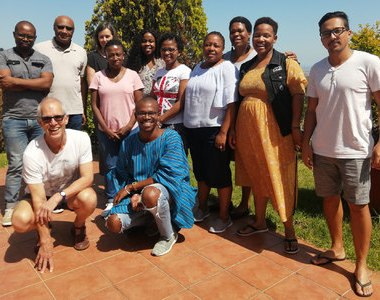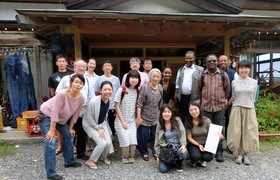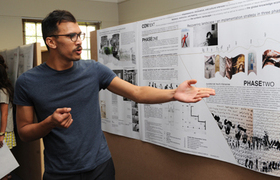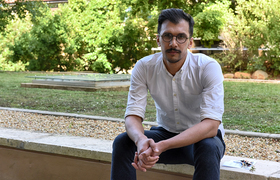Three UCT researchers among the world’s most cited
18 December 2018 | Story Staff Writer. Photo ILOVEBUTTER, FIlckr Read time 4 min.
This year, three UCT researchers featured on the list of Highly Cited Researchers for 2018, which identifies influential people as determined by their peers around the globe – those who have consistently won recognition in the form of high numbers of citations over a decade. The three researchers were Emeritus Professor Eric Bateman, Emeritus Professor William Bond and Professor Dan Stein, all of whom were listed in the new cross-field category which has been added to recognise researchers who are influential in more than one field.
The annual list of Highly Cited Researchers, released by Clarivate Analytics, identifies scientists and social scientists who have demonstrated significant influence through publication of multiple highly cited papers during the past decade. This year, the papers surveyed were those published and cited from 2006 to 2016. The Web of Science serves as the basis for the regular listings of researchers whose citation records position them in the top 1% by citations for their field and year.
“This year, a new cross-field category has been added to recognise researchers with substantial influence in several fields but who do not have enough highly cited papers in any one field to be chosen,” explains David Pendlebury, senior citation analyst at Clarivate Analytics “For example, an immunologist today is likely both a biochemist and molecular biologist, and a chemist is also a materials scientist and even an engineer.”
Some 6 000 researchers were named Highly Cited Researchers in 2018: around 4 000 in specific fields and about 2 000 for cross-field performance.
Some 6 000 researchers were named Highly Cited Researchers in 2018: around 4 000 in specific fields and about 2 000 for cross-field performance.
Head of the Department of Psychiatry and Mental Health at UCT, Stein’s research focuses on anxiety and related disorders, such as obsessive-compulsive disorder and trauma and stressor-related disorders. Speaking of his inclusion on the Highly Cited Researchers list, Stein said, “This reflects the high quality of work that has been undertaken in the past by postgraduates, post-doctoral fellows and other mentees in our Brain-Behaviour Unit and in our South African Medical Research Council Research Unit on Risk & Resilience in Mental Disorders and hopefully bodes well for future work to be undertaken in UCT’s Neuroscience Institute”.
Bond, who is part of the UCT Department of Biological Sciences Processes, has research interests that include the processes – such as fire, climate extremes and habitat fragmentation – that most strongly influence changes in vegetation.
Bateman, emeritus professor of medicine at UCT, is a clinician scientist and pulmonologist, and the founder and director of the UCT Lung Institute from 1999 until 2016. His primary research interests include the pharmacology and management of asthma and chronic obstructive pulmonary disease, as well as community-based interventions to improve the care of patients with chronic diseases.
Read more about the Highly Cited Researchers list…
 This work is licensed under a Creative Commons Attribution-NoDerivatives 4.0 International License.
This work is licensed under a Creative Commons Attribution-NoDerivatives 4.0 International License.
Please view the republishing articles page for more information.
New Generation of Academics Programme (nGAP)
UCT has responded energetically to the New Generation of Academics Programme (nGAP), an opportunity provided by the Department of Higher Education (DHET) to build a new generation of black South African academics. The DHET’s 2015 vision document, “Staffing South Africa’s Universities Framework: A comprehensive, transformative approach to developing future generations of academics and building staff capacity”, proposes a suite of initiatives to address the challenge, with nGAP being the major instrument to increase the numbers of black South African academics.
The programme “involves the recruitment of highly capable scholars as new academics, against carefully designed and balanced equity considerations and in light of the disciplinary areas of greatest need”. The nGAP scholars are appointed into permanent positions where from the outset their conditions are customised to ensure their successful induction into the ranks of established academics.
The DHET provides funding over a six-year period to support the appointment of an nGAP lecturer, and their time is protected to provide the best possible opportunity for the completion of a doctorate degree in the shortest possible time. Once the degree is completed, the nGAP lecturer’s teaching commitments are steadily increased until they shoulder a full teaching load.
Since the first advertisement for nGAP posts in 2015, UCT has been awarded 17 nGAP positions: 5 (Phase 1), 4 (Phase 2), 3 (Phase 3) and 5 (Phase 4). These are distributed across all faculties.
UCT’s nGAP scholars operate as a single cohort, managed and coordinated by Dr Robert Morrell. Lecturers meet for quarterly meetings, writing retreats and various capacity-building activities all designed to support the completion of postgraduate qualifications (particularly doctorates) and to develop records of achievement that will testify to their emergence as self-standing, excellent academics. Each lecturer is mentored by a senior scholar, who provides support and guidance on the challenges that routinely face academics.
The nGAP manager sets great store in building the cohesion of the cohort and encouraging the establishment of new UCT networks while producing a collaborative, mutually supportive and embracing work culture.
According to Dr Morrell, “This group of academics will lead UCT in 15 to 20 years’ time ... Their vision of excellence, of being African and South African, of serving a wider community and producing knowledge for the planet, the continent and the country, will power UCT in years to come.”
Newsletters
In the news




